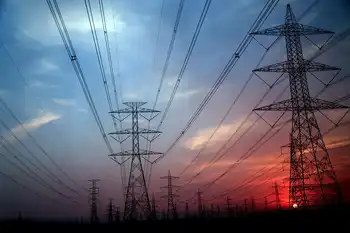Adani Electricity's Power Supply Cuts in Mumbai

Electrical Testing & Commissioning of Power Systems
Our customized live online or in‑person group training can be delivered to your staff at your location.

- Live Online
- 12 hours Instructor-led
- Group Training Available
Adani Electricity Mumbai Power Cuts follow non-payment rules, reflecting billing disputes, regulatory compliance, consumer impact, and affordability concerns, while prompting mitigation measures like flexible payment plans, assistance programs, and clearer communication for residents.
Key Points
AEML cutoffs for unpaid bills per rules, raising affordability worries, billing issues, and calls for flexible aid.
✅ Triggered by unpaid bills under regulatory guidelines
✅ Affordability and billing transparency concerns raised
✅ Mitigation: flexible plans, aid for low-income users
Adani Electricity Mumbai Limited (AEML) recently made headlines by cutting power supply to around 100 homes in Mumbai, sparking discussions about the reasons behind this action and its implications for consumers, especially as reports like the Northeast D.C. outage continue to surface.
Background of the Incident
The power supply disconnections by AEML were reportedly due to non-payment of electricity bills by the affected households. This action, although necessary under AEML's policies and in accordance with regulatory guidelines, has raised concerns about the impact on residents, particularly during challenging economic times when pandemic electricity shut-offs highlighted energy insecurity.
Reasons for Non-Payment
Non-payment of electricity bills can stem from various reasons, including financial hardships, disputes over billing accuracy, or unforeseen circumstances affecting household finances. In Mumbai, where the cost of living is high, utility bills constitute a significant portion of monthly expenses for many households, mirroring trends of rising electricity bills seen elsewhere.
Regulatory and Legal Framework
AEML's decision to disconnect power supply aligns with regulatory provisions governing utility services, which may include emergency disconnection moratoriums in other jurisdictions. Utility companies are mandated to enforce bill payments to maintain operational sustainability and ensure fair distribution of resources among consumers.
Consumer Impact and Response
The power disconnections have prompted reactions from affected residents and consumer advocacy groups, highlighting issues related to affordability, transparency in billing practices, and the need for supportive measures during times of economic distress amid heat-related electricity struggles that pressure vulnerable households.
Mitigation Measures
In response to such incidents, utility companies and regulatory authorities often implement mitigation measures. These may include flexible payment options, financial assistance programs for low-income households, and enhanced communication about billing procedures and payment deadlines, along with policy scrutiny such as utility spending oversight to curb unnecessary costs.
Future Considerations
As cities like Mumbai continue to grow and face challenges related to urbanization and infrastructure development, ensuring reliable and affordable access to essential services like electricity, including efforts to prevent summer power outages, remains a priority. Balancing the operational needs of utility providers with consumer welfare concerns requires ongoing dialogue and proactive measures from all stakeholders.
Conclusion
The power supply cuts by Adani Electricity in Mumbai underscore the complexities of managing utility services in urban centers. While necessary for financial viability and regulatory compliance, such actions also highlight broader issues of affordability and consumer protection. Moving forward, collaborative efforts between utility companies, regulatory authorities, and community stakeholders are essential in addressing these challenges and ensuring equitable access to essential services for all residents.











